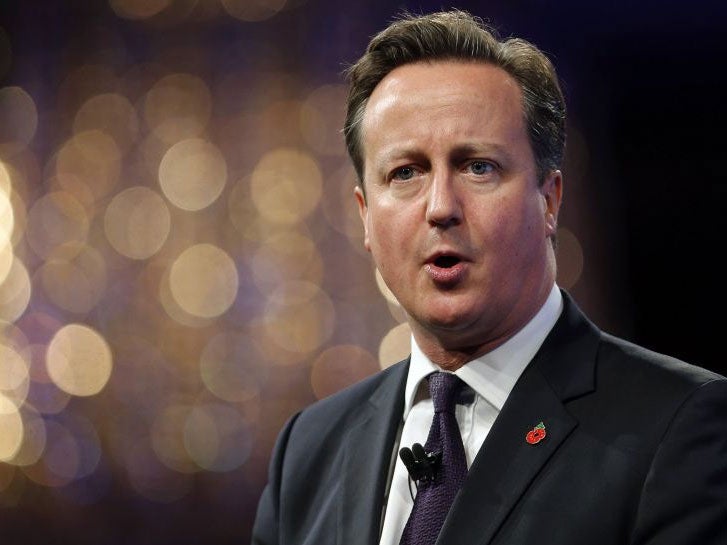David Cameron stresses Britain does not want a new Cold War with Russia
But he added he was ready to back tougher sanctions against Moscow over its actions in Ukraine

Your support helps us to tell the story
From reproductive rights to climate change to Big Tech, The Independent is on the ground when the story is developing. Whether it's investigating the financials of Elon Musk's pro-Trump PAC or producing our latest documentary, 'The A Word', which shines a light on the American women fighting for reproductive rights, we know how important it is to parse out the facts from the messaging.
At such a critical moment in US history, we need reporters on the ground. Your donation allows us to keep sending journalists to speak to both sides of the story.
The Independent is trusted by Americans across the entire political spectrum. And unlike many other quality news outlets, we choose not to lock Americans out of our reporting and analysis with paywalls. We believe quality journalism should be available to everyone, paid for by those who can afford it.
Your support makes all the difference.Prime Minister David Cameron said on Monday Britain didn't want a new Cold War with Russia, but signalled he was ready to back tougher sanctions against Moscow if it continued to destabilise Ukraine.
Addressing an audience in London at the Lord Mayor's banquet, an event traditionally dominated by the foreign policy crisis of the day, Cameron said Russia's actions posed a grave threat to the rest of Europe but that it wasn't too late to avoid a new Cold War.
Former Soviet leader Mikhail Gorbachev warned last week that East-West tensions over the Ukraine crisis were threatening to push the world into a new Cold War.
“That is not an outcome we believe to be inevitable and neither is it one we seek,” said Cameron. “And I will make that clear to President Putin in Brisbane this weekend.
Cameron and Putin will both attend a meeting of G20 leaders in Australia in mid-November.
The Prime Minister was speaking after a weekend that saw the heaviest shelling in a month in Ukraine hit the main rebel stronghold in the east and signs that Moscow had dispatched troops and tanks to reinforce separatists.
Up for re-election next year and faced with domestic difficulties over his policy on Europe and immigration, Cameron is keen for voters to see him as a serious player on the world stage and to make the point that Britain's own economic fortunes depend on engaging internationally to stem instability.
Cameron said “a military solution” to the Ukraine crisis was not an option, but that European Union sanctions against Russia were having an impact and he was ready to keep upping the pressure on Moscow if it continued to destabilise Ukraine and violate its territorial integrity.
“Russia's actions pose a grave danger to the rest of Europe,” he said. “We shouldn't need to be reminded of the consequences of turning a blind eye when big countries in Europe bully smaller countries.”
“If Russia continues on its current path, then we will keep upping the pressure and Russia's relationship with the rest of the world will be radically different in the future.
Reuters
Join our commenting forum
Join thought-provoking conversations, follow other Independent readers and see their replies
Comments